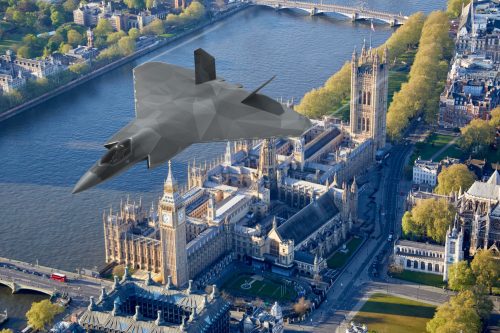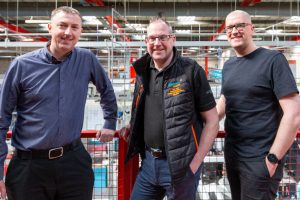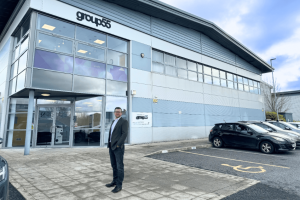Major boost for region’s defence industry as BAE Systems signs combat aircraft deal

UK defence giant, BAE Systems, Italy’s Leonardo and Japan Aircraft Industrial Enhancement Co (JAIEC), have reached an agreement to form a new company under a business joint venture for the Global Combat Air Programme (GCAP), subject to regulatory approvals.
The agreement will benefit the region’s industrial base, which is home to significant BAE Systems operations in Lancashire and Cumbria.
It also builds on the strong trilateral government, defence, and industrial cooperation between the UK, Japan, and Italy on GCAP since it was established in December 2022.
BAE Systems operates factories in Warton and Salmesbury, near Preston, building military aircraft, as well as a submarine building facility in Barrow, and employs around 15,000 staff in the region.
A group spokesperson said: “Today’s announcement is good news overall for our operations in Lancashire, which are the home of the UK’s combat air operations.
“Our sites in Lancashire will play a key role in the design, development and manufacture of the Global Combat Air Programme and will drive innovation and high tech jobs into the region as the programme grows over its lifespan, which is projected to be out to 2070s.”
The new joint venture announced today will be accountable for the design, development and delivery of the next generation combat aircraft and will remain the design authority for GCAP for the life of the product, which is expected to go out beyond 2070.
BAE Systems, Leonardo, and JAIEC will each hold a 33.3% shareholding in the new joint venture, bringing together the combined strengths and expertise of three leading companies and marking a pivotal moment for the international aerospace and defence industry.
Charles Woodburn, BAE Systems Chief Executive, said: “Today’s agreement is a culmination of many months working together with our industry partners and is testament to the hard work of everyone involved in this strategically important programme.
“The new business will bring together the significant strengths and expertise of the companies involved to create an innovative organisation that will lead the way in developing a next generation combat air system, creating long term, high value and skilled jobs across the partner nations for decades to come.”
Roberto Cingolani, Leonardo Chief Executive and General Manager, said: “This agreement is the result of an intensive journey made possible by pooling our mutual and shared experiences. This partnership not only enhances our technological capabilities but also reinforces our commitment to global security and innovation.
“Today, we are paving the way for the development of a new era in Aircraft Systems and Multi-domain scenarios, fostering long term sustainable growth for the economies of the involved countries.”
Kimito Nakae, President of JAIEC said: “As we now embark upon the exciting and important journey towards the success of GCAP, I acknowledge that the way might not always be simple and straightforward. However, I believe that through continuing the strong spirit of trilateral cooperation and collaboration that we have fostered up to this point, we will not only deliver the GCAP on time but also at a level that exceeds all of our expectations.”
The new joint venture will have operations and joint teams working in each of the partner nations.
It will be headquartered in the UK, to ensure maximum alignment and collaboration with the GCAP International Government Organisation (GIGO) which will also be headquartered in the UK.
Both entities will work together to support cost-effective and timely programme delivery, including a 2035 aircraft in-service date.
The Global Combat Air Programme, which will deliver Tempest, the next generation combat aircraft, is expected to make a significant contribution to the UK economy, including:
- £37bn GDP between 2025-2070, 85% of which is expected to be felt outside of London and the South East
- Support more than 16,000 highly skilled jobs per year for the next 10 years. This excludes the other aspects of the FCAS programme and exports, which will be significant
- Create high productivity employment, 83% higher than the UK national average
This return builds on the proven track record of the UK’s combat air sector, with the likes of Typhoon having returned £2 to the nation for every £1 invested in the programme.
BAE Systems said the direct contribution the programme will make is significant but the Government’s commitment to this programme also gives businesses confidence to invest, exemplifying how government funding can stimulate broad economic growth and deliver positive returns on investment.








